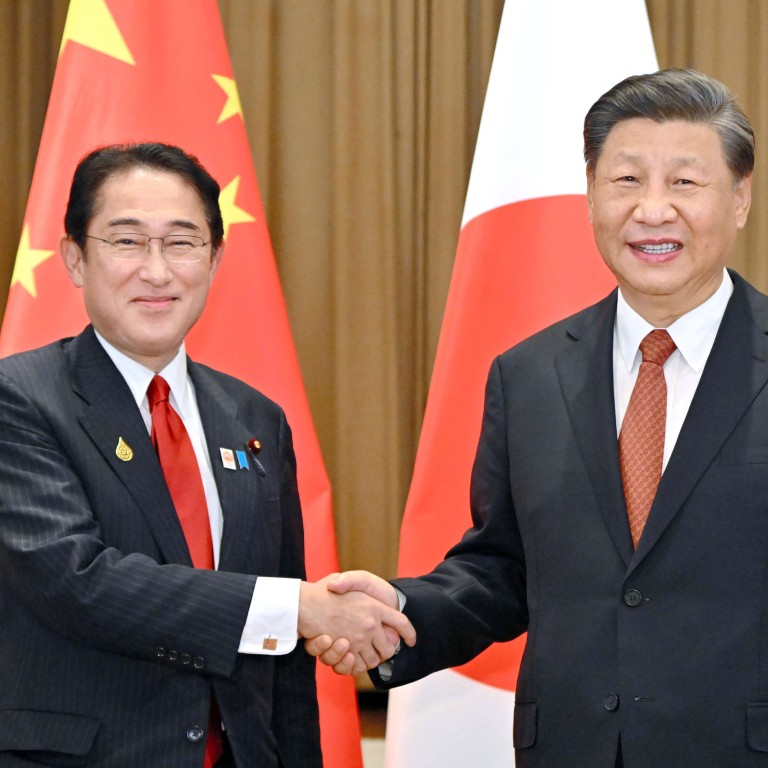
China sends coastguard ships near disputed Diaoyus days after maritime talks with Japan
- Both sides say Chinese patrol sailed in waters off the Diaoyu Islands, claimed by Japan as the Senkakus
- Tokyo lodges formal protest over the sailings, reportedly the 32nd this year, after talks on Tuesday to set up a bilateral mechanism on maritime affairs
Japan has lodged a protest with China via diplomatic channels over the latest sailings.
China ship with largest-ever gun enters Japan waters near Diaoyu Islands
A statement from Beijing following Tuesday’s meeting said the two sides had an “extensive and in-depth” exchange of views on maritime rifts and pledged to “earnestly implement” the agreement reached by their two heads of state last week to build “stable and constructive” ties.
Chinese President Xi Jinping and Japanese Prime Minister Fumio Kishida met on the sidelines of the Asia-Pacific Economic Cooperation summit in Bangkok on November 17, where they agreed to map out ways to improve relations.
Japanese media reporting on Tuesday’s virtual meeting said China was asked not to dispatch coastguard ships to disputed waters. But the Chinese statement made no mention of such a request, showing crucial differences between two parties had yet to be managed.
Japan’s foreign minister set for China visit after Xi-Kishida meeting
The Japanese side also expressed concerns about Beijing’s increasing military activities in the region, referring to an unprecedented incident in August in which Chinese ballistic missiles launched during military drills around Taiwan fell into waters within Japan’s exclusive economic zone. The point was also raised by Kishida when he met Xi in Bangkok.
Masatoshi Murakami, a Sino-Japanese affairs specialist at Doshisha University in Kyodo, said it was clear Tokyo intended to stick to its firm position on maritime issues, even as it aimed to build a constructive and stable relationship with Beijing.
Grant Newsham, senior research fellow at the Japan Forum for Strategic Studies, said despite the positive mood from the leaders’ summit, the virtual meeting on maritime issues had had no positive effects.
“China’s position on the main issue – ownership of the Senkakus and surrounding areas – is unchanged and shows no sign of changing,” Newsham said.
He said Chinese deployments around the disputed islands aimed to displace the Japanese coastguard by demonstrating Beijing’s administrative control of the area.
“The promises to cooperate on other matters really mean little compared to the territorial dispute between the two nations … There is no reason to think more talking is going to have any benefit.”
But Wang Yiwei, an international relations professor at Renmin University in Beijing, said the meeting in itself was meaningful.
“China and Japan are willing to negotiate on this thorny issue, and the negotiation itself is of significance. It is unrealistic to expect this talk to yield any immediate result.”


